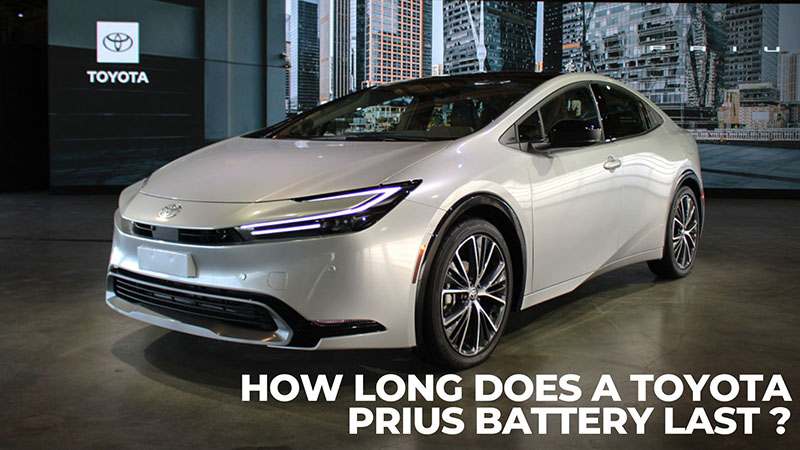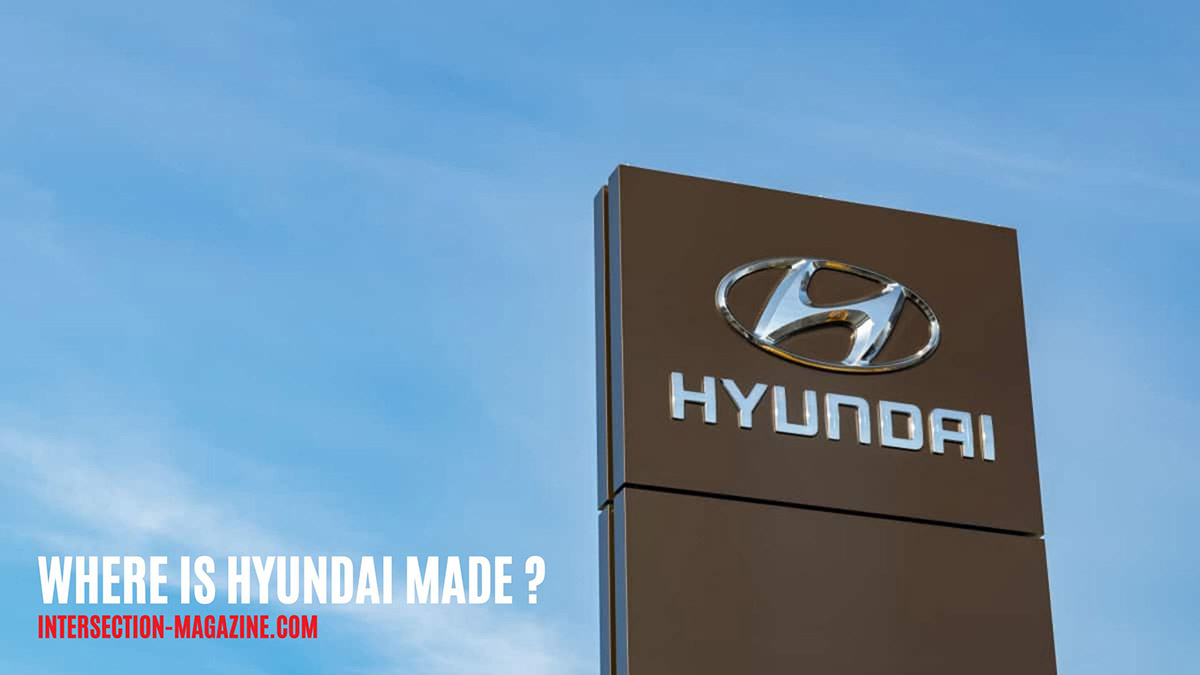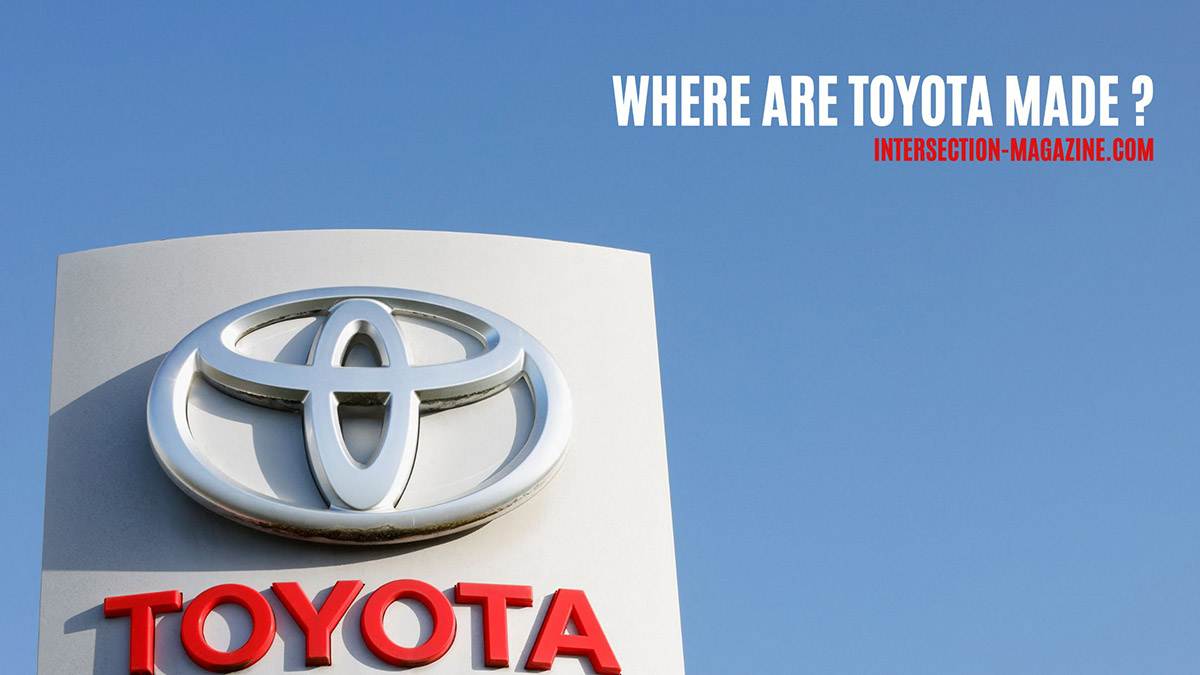Although the Toyota Prius battery life may fluctuate across different driving styles and maintenance methods, there is still a general mileage range to expect – and that is something today’s article will explore.
Keep scrolling to learn how long Prius batteries last, what affects these numbers, and ways to extend them.
How Long Does A Prius Battery Last?
Toyota Prius batteries can last 100,000 – 150,000 miles or approximately 8 to 10 years, further contributing to the brand’s reputation for impressive durability. Some even extend its life to 200,000 miles or 15 years.
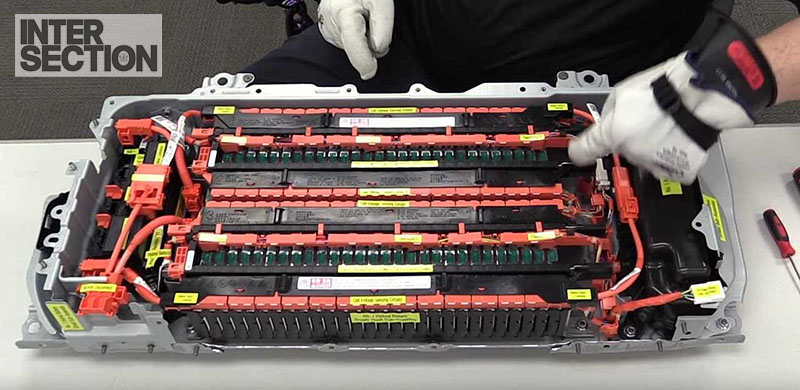
Several factors contribute to the battery’s system and design.
For starters, Prius uses manganese and nickel chemistry within the battery cells, whose sturdy composition strengthens the battery’s flow consistency and hence, offers better performance than other hybrid battery packs.
These components are also recognized for constant battery charge and high resistance, perfect for both daily and off-road driving conditions.
The fact that these batteries are Lithium-ion is also worth mentioning. Lithium-ion is much lighter than the rest of its siblings, which reduces massive strain/pressure on the Prius’s undercarriage and paves the way for fantastic fuel efficiency.
Without excess load getting in the way, Prius’s battery life is obviously extended as a result.
Aside from factory designs and measurements, proper care and maintenance also play a critical role in Prius’s maximized battery life.
The car is regularly inspected and monitored, meaning any technical issues or underlying problems will get fixed before the car mileage is affected. As such, no wonder the battery’s shelf lives are safely preserved.
To sum it up, the impressive 150,000-200,000-mile mark is a cultivated result of lightweight design (Lithium), advanced substance chemistry, hybrid engine reliability, and, most importantly, your maintenance schedule.
And since every car shares the former three, maintenance becomes the decisive factor: we will return to this issue in the latter half of the article.
Signs of Dying Prius Battery
When you encounter dashboard lights turning on, bad fuel economy, reduced power or delayed acceleration, charging issues, overworking ICE, and weird fan noises, brace yourself: the battery is very likely reaching the endpoint of its cycle.
Dashboard Light Turning On
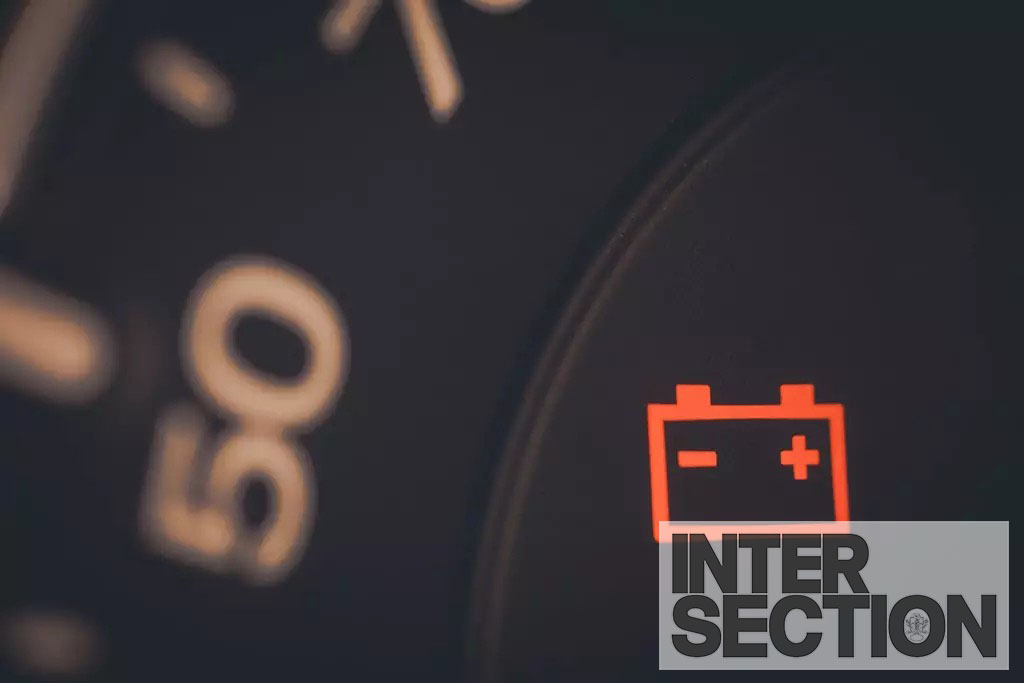
When all the dashboard lights (check engine lights, VSC/electric vehicle stability controls, engine coolant light, etc.) are simultaneously activated, it is time to double-check the battery’s operation.
And if the red triangle light blinks, that is bad news: after all, it is dubbed by many as “the triangles of death” for a reason.
Decreased Fuel Economy & Power
MPG (miles per gallon) worsening over time is also a tell-tale sign of problematic batteries: they either lose charges due to corrosion or have never gotten to the Full benchmark for a long time.
So pay attention to your car trips, and get to action if your trips to the gas station seem more and more frequent.
Also, once the battery approaches the end of its life, not only do you have to visit gas stations more often but you might also notice a lag in power (delayed acceleration or difficult start-ups) or electrical system problems (dim lights, radio not working, etc.).
Charging Issues
If the Prius display shows you erratic numbers or fails to hold charges, then the battery must have gone through something weird; after all, no well-functioning battery should fluctuate that much during drives!
In rarer cases, the problems lie in the electrical energy plugs, not the batteries themselves. To avoid wasting money unnecessarily on battery repairs, ask the technicians to inspect the plugs twice.
Overworking ICE (Internal Combustion Engines System)
The ICE will take over the power delivery when your battery fails to do its job. Hence, an overworking ICE clearly implies operation issues with the battery power.
In such cases, the ICE will cut in constantly during drives without warnings. Watch out for any other signals of abnormal ICE operation, and check the batteries immediately if there are any.
Weird Noises
Continuous sounds coming from the car’s fan indicate overheating hybrid batteries. Failure to treat the excess battery temperature on time will eventually damage both the batteries and other surrounding components.
What Should You Do When The Prius Battery Is Dying?
Bringing the car to a closeby shop is the first step to take. From there, ask yourself whether the main or the smaller batteries are dying (the latter does not need immediate replacements) – and if it would be better to replace the entire car instead of just the battery.
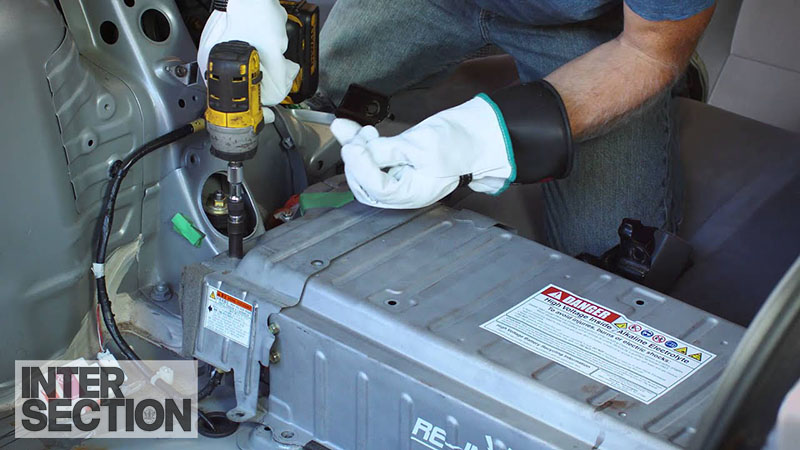
Check The Battery Type
Critical steps to take depend on the battery type affected.
In most parallel hybrid models like Toyota Prius, there are usually two batteries installed: the main one (bigger, high-voltage battery packs) for electric engines and another (smaller, usually 12-volt battery) to power electric components.
The good news is that your car can still operate when the smaller ones die, but we cannot say the same about the main batteries.
Seek professional help right away if your case is the latter; experts will assess the problems and provide corresponding hybrid battery replacement/repair options, depending on the damage severity.
Since these are Prius hybrid batteries we are talking about, expect to invest $1,700 to $3,600 (labor included). If the number seems beyond your current budget, you may resort to refurbished, temporary battery versions at $1,000 to $2,000, though these batteries would never last your car as long.
Check The Car Age
On another note, do factor in the car’s age: suppose you have used your Prius for more than 20 years, and its batteries are functioning; then you might do better with an entire car replacement instead of just repairing the battery pack.
Aging hybrids often encounter lots of component failures, after all, and dying batteries are just the tip of the iceberg.
Are All Prius Batteries Interchangeable?
No, they are not. While it is true that most Prius batteries are Lithium-Ion, some car models use NiMH (Nickel-Metal Hydride battery) instead.
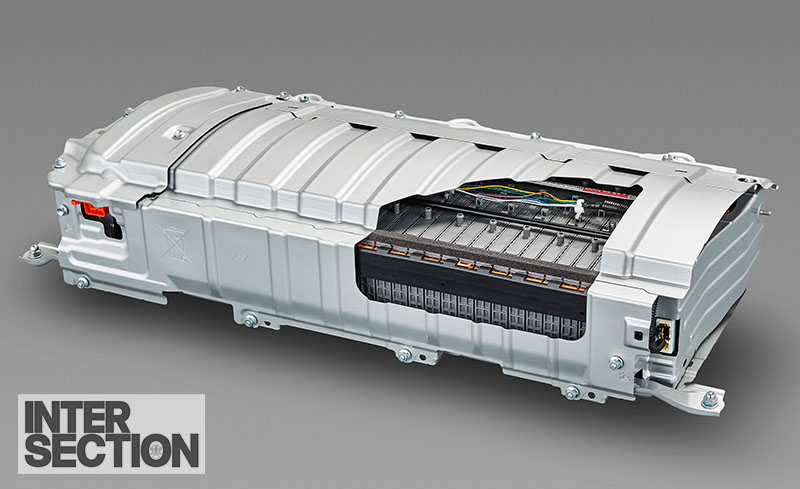
There is no need to worry about this difference if you have your car batteries changed by experts; they will factor in the battery type during the process.
However, for people buying car batteries to change them at home, we suggest informing the dealers of your car’s make and model so that they can help you choose the most suitable options.
What Shortens The Toyota Prius Battery Life?
On/off engine cycles, frequent short trips, cold starts that leave the engine with no warm-up time, intense heat/hot temperature range, and engine bay moisture all result in reduced battery life span and electrical shorts.
Tips to Extend The Prius Batteries Lifespan
- Fasten the car battery securely to keep vibration damage at bay
- Turn off bright headlights and electronics to reduce unnecessary battery strain/pressure
- Clear the battery terminals regularly to remove dirt buildup and corrosion.
- Keep a consistent and frequent battery maintenance routine, and check its voltage level at least once every two months.
Conclusion
How long a Prius battery lasts is entirely dependent on proper care and routine maintenance. You know what to do; note down our extra battery-extending tips right away, and drop by the nearest shop at the slightest signal of battery failure.

